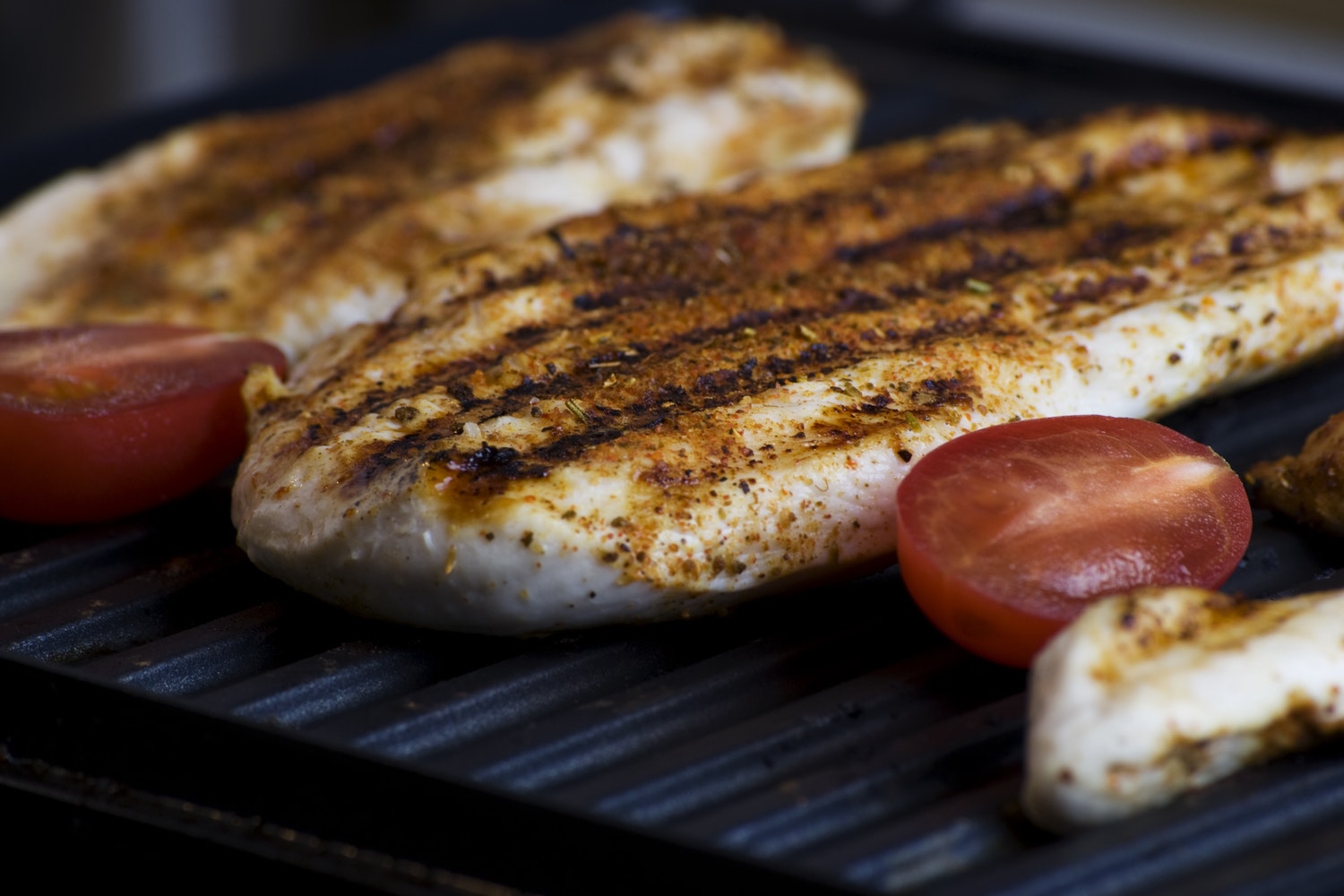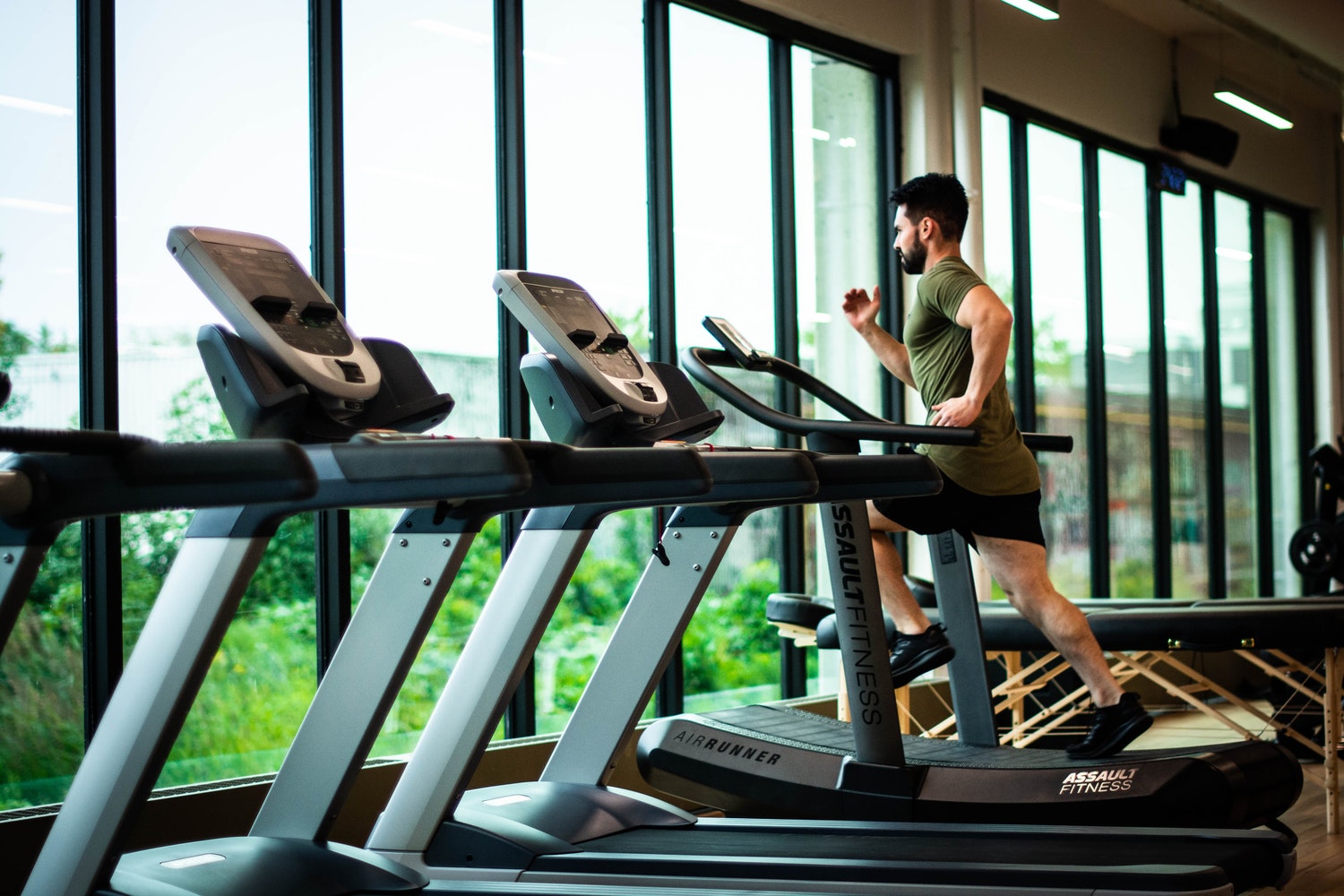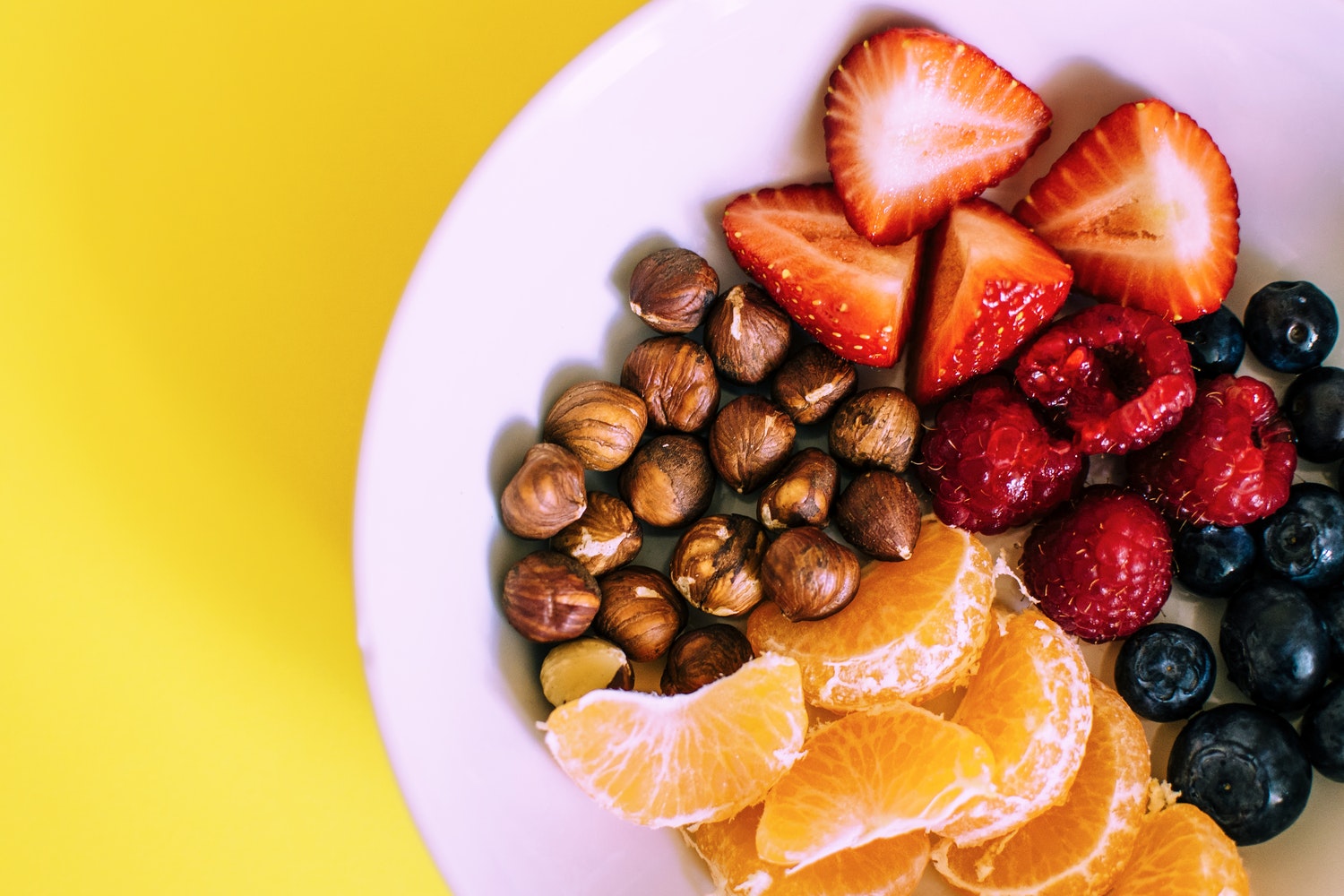Working out is essential to improving your physical condition, building muscle, and boosting overall physical health. However, without a proper diet, your results may be diminished, stunted, or even nonexistent.
A healthy, well-balanced diet will benefit your workout recovery and result and keeping your body healthy and energized. Without the proper fuel, your body will not have the nutrients it needs to exercise, let alone build muscle.
To maximize your muscle-building results, it is crucial to eat the right foods and understand the role that macro and micronutrients play in your body.
Macronutrients
Macronutrients are the nutritional components of food that the body needs for energy and to maintain the body's structure and systems. The three macronutrients are:
- Protein
- Carbs
- Fat
Muscle mass is built when the net protein balance in the body is positive. To build and maintain muscle mass, it is recommended that a person who lifts regularly eats between 0.5 to 0.8 grams of protein per pound of body weight. Therefore, if you are 170 pounds, you should aim to eat between 85 and 136 grams of protein each day to gain muscle.
While proper protein intake is vital to gaining muscle, carbs and fat are also essential macronutrients to consider. Carbs are broken down and stored in your liver and muscles as glycogen, becoming your body's main energy source. Without glycogen, your body will not have the energy it needs to exercise.
Furthermore, when glycogen stores are depleted, your body will instead extract energy by breaking down muscle tissue, thus diminishing your gains.
Good fats are also essential to providing energy for your workouts and promoting good cholesterol. While carbs provide more short-term energy, fats are utilized for longer-term, more sustained energy.
A balanced diet that promotes muscle growth will include protein, carbs, and fats.
Micronutrients
Micronutrients are the vitamins and minerals needed in small amounts to process macronutrients and support a healthy body. The 13 essential vitamins include the water-soluble vitamin B complex and vitamin C, which must be consumed daily since they are not stored in the body. Fat-soluble vitamins K, A, D, and E, can be stored in the body fat. For athletes, the most important vitamins are:
- B complex (B-1, B-2, B-3, B-5, B-6, B-7, B-9, B-12)
- Vitamin C
- Vitamin D
- Vitamin E
B vitamins produce energy, build muscle, and form the oxygen-carrying red blood cells. Vitamin C has been shown to blunt the muscle wasting effects of cortisol. Vitamin D is necessary for calcium absorption and thus helps build the strong bones necessary for an athlete. Vitamin E helps prevent muscle breakdown with exercise.
Muscle-building minerals include calcium, phosphorus, iron, and zinc, while all athletes need the electrolyte minerals sodium, potassium, and magnesium.
So What Should I Eat?
It is recommended that your caloric intake consists of 55-60 percent carbs, 25-30 percent protein, and 20 percent fat to optimize muscle mass growth. It is also essential that your daily micronutrients are consumed, which can be easily obtained with a balanced diet containing five to nine servings of vegetables per day.
It is best to stick to lean proteins or proteins that contain polyunsaturated or monounsaturated fats rather than saturated or trans fats when it comes to protein. Unlike healthy fats, unhealthy fats can increase your cholesterol and risk heart disease.
The carbs you consume should be complex carbohydrates. Simple carbs, such as white rice and sourdough bread, cause blood sugar levels to spike and lead to diabetes.
Now it’s time to build a diet with lean protein, complex carbohydrates, healthy fats, and plenty of micronutrient-rich veggies. Here are 20 foods you can include in your diet to build muscle:
Chicken Breast
Chicken breast is an excellent source of lean protein and a staple within the bodybuilding community. Just a three-ounce serving contains 26 grams of protein.
This protein-packed poultry also contains generous amounts of the B vitamins niacin and B6, which can help process fats and carbs in your body. Optimal levels of B vitamins support your body’s ability to exercise and build muscle.
Turkey Breast
Similar to chicken breast, a three-ounce serving of turkey breast contains 25 grams of protein and almost no fat or carbs. Turkey breast is also rich in niacin.
Eggs
Eggs are packed with not only protein but also healthy fats. One large egg contains six grams of protein and three grams of polyunsaturated and monounsaturated fats, all in a 70 calorie package.
Eggs are also filled with leucine, an amino acid vital to building muscle.
Salmon
In addition to providing 17 grams of protein per three ounces, a single serving of salmon also boasts nearly two grams of omega-3 fatty acids. In addition to improving muscle performance, these healthy polyunsaturated fats may benefit brain function, cardiovascular health, immune function, and bone health.
Bonus tip: Canned salmon contains edible bones that are packed with calcium.
Tuna
Similar to salmon, tuna is a protein-packed fish with ample amounts of omega-3 fatty acids. Tuna also contains large amounts of vitamin A, B12, B6, and niacin, which are essential to energy and athletic performance.
Legumes
Legumes are a family of plants that include beans, lentils, peas, and peanuts. They are generally high in protein, which can boost muscle growth.
Just one cup of cooked chickpeas contains 13 grams of protein, while one cup of lentils boasts 18 grams of protein.
Legumes are also an excellent source of magnesium, which benefits energy production and muscle contraction.
Cottage Cheese
Just one cup of low-fat cottage cheese packs 28 grams of protein, including a large dose of the muscle-building amino-acid leucine.
Like other dairy products, cottage cheese can be purchased with varying fat contents. The higher the fat content, the greater the calories.
If your goal is to gain mass and remain in a calorie surplus, higher-fat dairy products might be the right choice for you. However, it is best to limit your intake of saturated fat.
Greek Yogurt
Boasting 24 grams of protein per cup, Greek yogurt has double the protein of regular yogurt. Within those 24 grams are both slow and fast-moving proteins, which can aid muscle growth.
One study showed that Greek yogurt might improve strength, muscle thickness, and body composition when paired with resistance training.
Lean Beef
While beef can often be high in saturated fats, three ounces of 95 percent lean beef contains 22 grams of protein and less than three grams of saturated fat.
In addition to high-quality protein, lean beef also contains creatine, which has been shown to increase athletic performance, recovery, and injury prevention.
Soybeans
Half a cup of cooked soybeans contains 14 grams of protein and healthy unsaturated fats. Soybeans are also fantastic sources of vitamin K, iron, and phosphorus.
Iron transports oxygen to your blood and muscles, and a deficiency can impair those functions. Young women are at a higher risk of iron deficiency due to menstruation.
Tofu is a common dish made from soybeans.
Brown Rice
A single cup of brown rice contains five grams of protein and 45 grams of complex carbohydrates. These complex carbs will give you the energy you need to stay active and have plenty of fiber.
Tilapia
Unlike tuna and salmon, tilapia is a source of lean protein that does not contain many omega-3 fatty acids. However, it does contain 21 grams of protein per three ounces and plenty of vitamin B12.
Beans
Black, pinto, and kidney beans contain 15 grams of protein per cup. They are also excellent sources of carbs, fiber, B vitamins, iron, magnesium, and phosphate, making them the perfect side dish or addition to a salad.
Protein Powder
If your dietary needs require a large amount of protein, it can be difficult to achieve that with just whole foods. Adding a protein shake to your diet is an easy and inexpensive way to hit your macros.
Dairy-based protein powders such as whey and casein are the most popular due to their high absorption rates and low costs. However, plant-based protein powders such as pea, soy, and brown rice are also excellent choices.
Combine your protein shake with BCAAs and creatine to promote muscle growth and recovery.
Quinoa
Similar to brown rice, quinoa is an excellent source of complex carbohydrates, boasting 40 grams of carbs per cup. However, with eight grams of protein per serving, quinoa has nearly double the protein content. Quinoa is also rich in fiber, magnesium, and phosphorus.
Nut Butters
Nut butters, such as peanut butter and almond butter, are incredible sources of protein and fat. Just one tablespoon of peanut butter contains four grams of protein and six grams of polyunsaturated and monounsaturated fats.
Sweet Potatoes
Sweet potatoes are an excellent source of complex carbohydrates that will keep your glycogen stores in check while also providing four grams of protein per one cup. However, the benefits do not stop there.
Sweet potatoes are highly nutritious, packed with micronutrients fiber, vitamin A, vitamin C, manganese, vitamin B6, niacin, and potassium. Potassium is a micronutrient essential to promoting muscle recovery.
Sweet potatoes may also promote brain function, healthy vision, and cancer-fighting properties.
Oats
With 27 grams of carbs and six grams of protein, a bowl of oatmeal is a perfect breakfast or pre-workout snack. Add some peanut butter and berries to your oatmeal to make it even more nutritious.
You can even add half a cup of oats to your protein shake to incorporate more carbs into your diet.
Broccoli
Vegetables are an essential part of any diet as they are packed with micronutrients. Broccoli is no different, boasting high levels of vitamin C and vitamin K. These vitamins can help support the immune system and reduce blood sugar and cholesterol levels.
One cup of broccoli will also provide any additional 3 grams of protein.
Avocado
Avocado is loaded with healthy monounsaturated fats, potassium, and fiber. A single cup of avocado will provide more than half of your daily fiber and fat values. It will also provide five grams of protein and 20 grams of carbs, making it an excellent snack or nutritious addition to any meal.
Putting It All Together
That’s a lot of different foods! If you’re overwhelmed, don’t worry. Here is an example of how you can incorporate these foods into your diet and workout routine:
- Breakfast: A bowl of oatmeal with almond butter and berries
- Pre-workout: Cottage cheese on whole-wheat toast
- Post-workout: Omelette with avocado, spinach, smoked salmon, and a side of sweet potatoes
-
Dinner: Chicken breast with quinoa and broccoli
This diet will provide roughly 115 grams of protein and your daily intake of carbohydrates and fats. Use this guide as a jumping-off point for your own needs. If you want to incorporate more protein into your diet, simply add a protein shake to your post-workout meal.
Pro-tip: Blend some spinach or kale with your protein shake to add further micronutrients to your diet. You will barely be able to taste it, I promise.
If you need less protein in your diet, remove the smoked salmon from the omelet or the almond butter from the oatmeal. Less carbs? Remove the sweet potatoes or toast.
You can also use this diet as a general guide for customizing your diet. Replace the chicken breast with salmon or beef. Replace the quinoa with brown rice or sweet potatoes. Replace the cottage cheese and toast with greek yogurt and granola.
Variety in your diet is a good thing, so embrace change and try new things.
A Quick Note on Water
No diet is complete without adequate water consumption. Dehydration can cause increased fatigue, decreased athletic performance, and diminished muscle recovery and growth. As a general guide, you should drink between 2.7 and 3.7 liters of water each day.
Everyone is different, though, so it is best to pay attention to your thirst and urine. Lemonade-colored urine is healthy, while anything darker indicates dehydration.
In addition to water, exercise may cause you to lose such minerals as sodium, sugar, and magnesium. It may be beneficial to consume electrolyte-dense fluids such as sports drinks, coconut water, or electrolyte supplements following your workout.
The Wrap-Up
If you’re not seeing the results you want from your workouts, an imbalanced diet may be the culprit.
Make sure you consume 0.5 to 0.8 grams of protein per pound of body weight. Get this protein from lean sources, such as chicken breast or tilapia. Some fatty proteins, such as salmon, can be beneficial, though. Good fats, such as polyunsaturated and monounsaturated fats, are essential in supporting energy and a healthy body.
Complex carbs are always preferable over simple carbs, as simple carbs are often considered “empty calories.” We want to make sure each of the calories we consume has a purpose.
Don’t forget the micronutrients! These vitamins and minerals are key to supporting a healthy body and promoting muscle growth. They can be found in all kinds of foods, but especially fruits and vegetables.
Once you get your diet in check, you will be well on your way to seeing positive results. For the best results, check out the Ski-Row Air or Ski-Row Air + PWR machines by EnergyFit.
Sources:
Protein Intake For Optimal Muscle Maintenance | ACSM
Sports Nutrition Part 2: Macronutrients & Micronutrients | IMCWC
Macronutrient considerations for the sport of bodybuilding | NCBI
B-vitamins and exercise: does exercise alter requirements? | NCBI
Egg Protein as a Source of Power, Strength, and Energy | Nutrition Today
The role for dietary omega-3 fatty acids supplementation in older adults | NCBI
ISSN exercise & sport nutrition review: research & recommendations | NCBI
Legumes: Health Benefits and Culinary Approaches to Increase Intake | NCBI
Water: How much should you drink every day? | Mayo Clinic
Sweet Potatoes | The Nutrition Source | Harvard TH Chan School of Public Health




Leave a comment
All comments are moderated before being published.
This site is protected by hCaptcha and the hCaptcha Privacy Policy and Terms of Service apply.